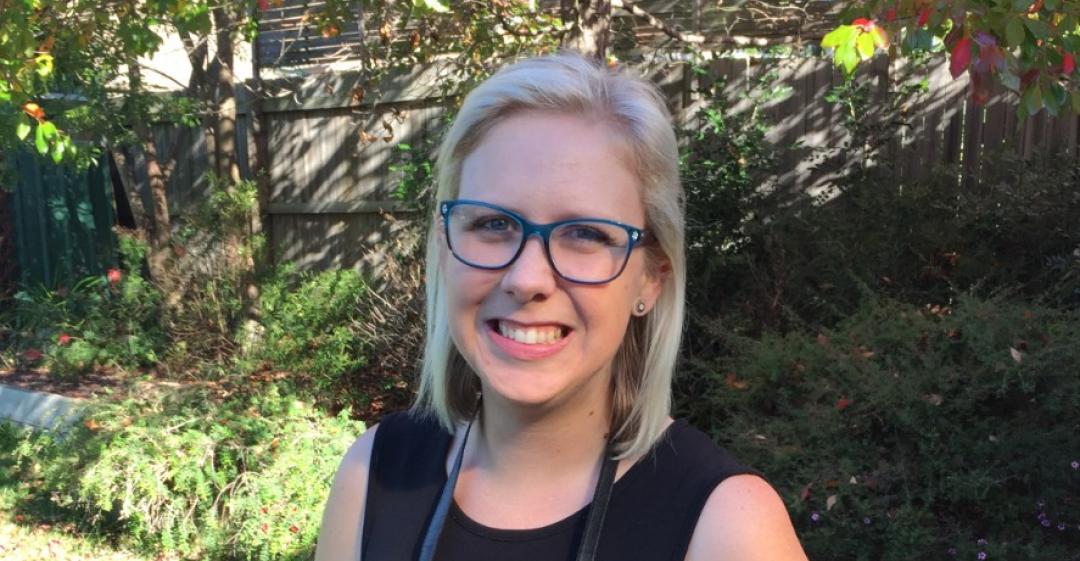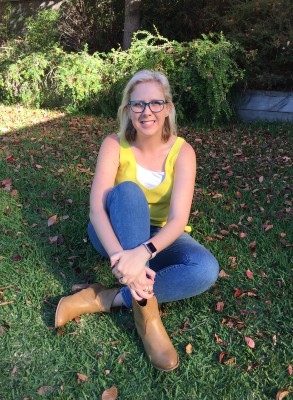“I felt depressed and anxious. Some days I didn't feel like going to work at all.”

What work were you doing previously?
I worked in the public sector as a caseworker in child protection.
What are you doing now?
I'm an art educator and facilitator.
I've just completed a Master's degree in Art Therapy. I use these skills to teach art and run art sessions for children and adults who have a disability, providing art-making experiences that are accessible to everyone.
How did you feel in your work before you decided to make the change?
It was an emotional and demanding job, with long hours and some extremely confrontational situations.
Although there were a lot of rewards in the work, there were also a lot of frustrations and setbacks. I was faced with extremely sad situations, with little support or resources to help families in making the changes they needed to keep children safe.
I was feeling trapped before I decided to leave. I felt that I had a 'good' job and that I needed to work on myself so that I felt OK about work. I was depressed and anxious at times. Some days I didn't feel like going to work at all, and found myself avoiding work when I could.
I was getting sick often and didn't feel like socialising much. I was always trying to play catch up to get on top of my work.
Why did you change?
I wanted to do something positive in people's lives.
I've always wanted to help people, but found working in child protection a difficult place to help people in a meaningful way.
There was a lot of micromanaging and it was difficult to support families whilst working in a non-voluntary climate.
When was the moment you decided to make the change?
I went to a training course run by Dr Bruce Perry, a leading child psychiatrist.
He talked about trauma-informed care. One of the many therapies that support children with trauma is Art Therapy.
This was the start of my new career path.
How did you choose your new career?
I visited a service that provides art therapy services for children.
The art therapist there told me about a university course I could complete and some of the job opportunities in the field.
I started my Master's in Art Therapy about four years ago and finished last year. In my final year I completed a year's practicum with one of the founding art therapists in Australia. I had the privilege of working with her for a year, at a local school that provides specialised educational facilities for children on the autism spectrum.
This led me to pursue a career in art therapy and art facilitation, providing accessible art-making opportunities for people with a disability.
Are you happy with the change?
Absolutely. It's been one of the best things I've ever done in my life.
It's not only changed my everyday routine, and my work life, but it's had cascading effects on my personal life too.
It's shown me that I have control and agency over my life and that I can make my own decisions.
What do you miss and what don't you miss?
I miss my colleagues and some days I miss the money as well.
I don't miss the heavy workloads, and constant unpredictability of the job.
How did you go about making the shift?
I saved some money, cut back on non-essentials, and started living a more minimalist lifestyle.
In the final year of my Master's, I quit my job to complete my clinical practicum. I then worked as an educator, teaching art to primary-school-aged children.
What didn't go well? What wrong turns did you take?
I took too long to make the shift.
Scared of falling off the cliff, I waited for the 'right' time.
In the end I was pushed into leaving my old job because of my study commitments – I couldn't work and complete a practicum three days a week. This forced me to leave, which led me to find a way to make money. This is where I found a job teaching art to primary aged students, one of my favourite casual jobs.
I wish that I had left my old job earlier.
How did you handle your finances to make your shift possible?
I cut back a lot and had all my credit cards paid off to reduce the burden.
I was very fortunate to have a partner who could financially support me. This made it a lot easier.
What was the most difficult thing about changing?
Leaving a job I knew so well and becoming a learner again.
Slowing down too, that was hard for me. I'm still learning to do it. I find it difficult when I don't know what I'm doing, so I remind myself daily that it's OK to be a learner. I'm giving myself permission to be a student, an observer and rookie.
What help did you get? 
I had a lot of help from my partner, and from my university. I was fortunate to have weekly supervision meetings whilst going through my practicum.
And the success stories on the Careershifters website helped me realise I wasn't the only one crazy enough to chase a career I love.
What resources would you recommend to others?
Networking.
It's been a great resource for me in finding casual work, and also leading to other employment in my field of choice. I found my educator roles through friends and recommendations.
University services are a great support for resources and career advice. They also helped support me to brainstorm workplaces that I could practise art therapy in.
What have you learnt in the process?
I learnt not to wait for the right time.
Leaving my job forced me to figure the rest out. I didn't go broke or fall off a cliff. I made mistakes and had to readjust the budget, but things did fall into place.
When I started the process I read this advice and told myself I couldn't do it, but, looking back, I could. I wish I'd taken the advice to leave earlier, and let the justifications to stay in the job go – they were holding me back.
And I learnt that you can't always find your dream job via a job search, so you need to approach organisations and tell them what you can do, to literally create your job!
What would you advise others to do in the same situation?
It's OK to go backwards, to earn less money.
In the end, we don't really need that much money, and I live in Sydney, one of the most expensive cities in the world.
What lessons could you take from Liz's story to use in your own career change? Let us know in the comments below.



